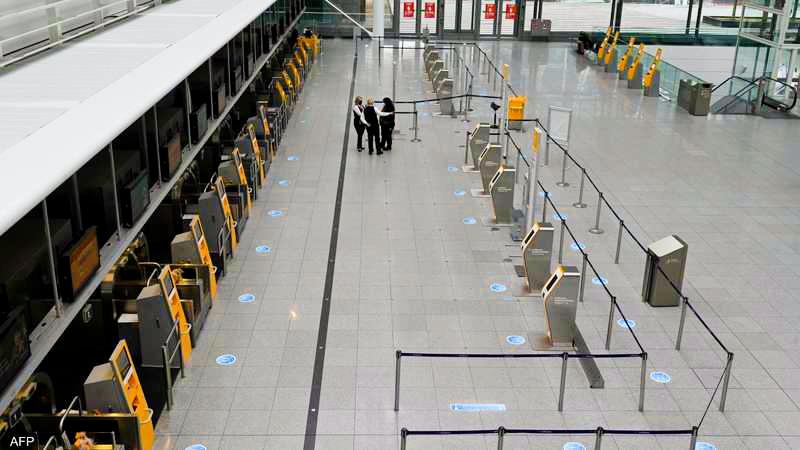Munich International Airport experienced unprecedented chaos last night, after several drones were spotted, triggering an emergency in air traffic control, forcing officials to suspend operations completely.
The airport management announced in an official statement on Friday morning that the suspension of flights began at 10:18 PM (GMT) on Thursday, resulting in the cancellation of 17 flights and the delay of travel for approximately 3,000 passengers.
Additionally, 15 incoming flights were diverted to alternative airports in Stuttgart, Nuremberg, Vienna, and Frankfurt.
The German police confirmed early this morning the cancellation of about 20 additional flights after drones were spotted flying near the airport and then over its grounds, prompting the closure of the airport's runways as a precautionary measure.
Local and federal police teams conducted extensive searches but were unable to find any drones or suspicious individuals.
This incident comes as the latest disruption in European air traffic, following temporary closures at airports in Denmark and Norway last week due to similar threats.
These incidents reflect rising security tensions surrounding drones that have begun to threaten civilian and military sites in Germany and other countries.
In light of these developments, German Interior Minister Alexander Dobrindt emphasized the need to find "new and effective responses" to address the hybrid threats posed by drones, including the possibility of shooting them down to prevent further disruptions.
In a related context, European concerns are escalating regarding the involvement of external parties in these operations, with countries like Poland and Denmark hinting at a possible Russian role in creating these security crises.
During the crisis, Munich Airport provided support services for affected passengers, including beds, blankets, and snacks and drinks, in an attempt to alleviate the impact of cancellations and delays.
This incident underscores the urgent need to enhance surveillance and defense systems at European airports, amid rising threats that challenge civil aviation security and disrupt air traffic in the region.

